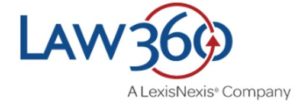US Asks Court To Throw Out Ukraine Laundering Suit

By David Holtzman
Law360 (March 27, 2023, 7:18 PM EDT) — The U.S. government asked an international arbitral court to reject a case brought by a group of real estate entities allegedly linked to $5 billion stolen from a Ukrainian bank, dismissing the claims as “frivolous.”
In a brief entered last month in the International Centre for Settlement of Investment Disputes and published on Monday, the U.S. said the Optima entities failed to try to work with it to resolve the conflict before filing a claim, as a treaty between the U.S. and Ukraine requires. The claim was also premature, the brief said, because underlying civil forfeiture cases in U.S. courts are ongoing.
The case concerns a $23 million office complex in Dallas and a 22-story office building in Cleveland that the U.S. seized. The government said the buildings were purchased with funds embezzled from PrivatBank, which the Ukrainian government took over after the alleged fraud was uncovered. In separate cases, the U.S. made similar claims about a 31-story tower in Louisville, Kentucky.
The U.S. alleged in the forfeiture cases that former PrivatBank owners Igor Kolomoisky and Gennadiy Boholiubov, accused of embezzling and defrauding the business of billions of dollars between 2008 and 2016, worked with two Miami-based associates to launder the bank funds to acquire property in the U.S.
As the forfeiture cases were underway, the real estate entities created to manage these properties filed the international court claim in February 2021. The U.S. said the treaty with Ukraine obligated them to wait for a six-month “cooling-off period” between the date they gave notice of their intent to file a claim and the actual filing date.
The claimants said that since the underlying forfeiture case was filed in Texas federal court in August 2020, they met the six-month requirement by waiting until February to file, according to the brief. But the Texas case said nothing about a dispute regarding the U.S. bilateral investment treaty with Ukraine; therefore, the brief argued that the proper start date for the six-month period was October 2020, when the claimants filed their notice to arbitrate with the international court.
In the case of the Cleveland property, the claimants didn’t file a notice to arbitrate until January 2021, just over one month before making its formal claim.
“The mandatory six-month ‘cooling-off’ precondition is intended to allow the parties to seek an amicable resolution of the dispute,” according to the brief.
To preserve the value of the Dallas and Cleveland properties, the U.S. and the property owners agreed to sell them and place the proceeds in an escrow account pending the outcome of the forfeiture cases. In the brief published on Monday, the U.S. said the claimants now wrongly argue that the forfeiture is final, though they will get their property back if they win in court.
“There is no question that the mechanisms for preserving value were followed,” according to the brief. “Claimants even agreed to the sale of both properties and the holding of the funds in escrow, pending the outcome of the forfeiture proceedings, during which claimants would have the ability to contest the forfeitures.
“The case before the international court is therefore premature, the U.S. said, since the court’s procedures bar filing a claim about a “non-final” judicial act.
The claimants also argued that the U.S. forfeiture cases are “contrary to the competing rights of Ukraine,” according to the brief, a violation of the treaty. In its brief, the U.S. responded that the treaty only provides “a minimum standard of treatment of aliens”; it does not protect individual investors or their investments.
The international court case was delayed in 2022 when the claimants objected to the appointment of former U.S. Homeland Security Secretary Michael Chertoff as a member of the tribunal. The court eventually agreed that Chertoff should not be on the panel, since he has continued to advise the Homeland Security Department. As a replacement, David Pawlak, a former State Department official, was appointed in January.
The State Department declined to comment on the case. Counsel for the Optima entities could not be immediately reached for comment. The court set a deadline for the entities to respond to the U.S. brief by Friday.
The Optima entities are represented by Black Srebnick Kornspan & Stumpf PA and Kasowitz Benson Torres LLP.
The government is represented by the U.S. Department of State’s Office of the Legal Adviser for International Claims and Investment Disputes.
The case is Optima Ventures LLC et al. v. U.S., case number ARB/21/11, in the International Centre for Settlement of Investment Disputes.
–Editing by John C. Davenport.
